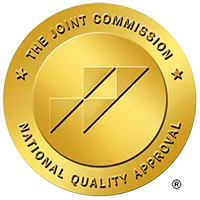Cocaine is a highly addictive stimulant. While it remains classified as a Schedule 1 drug, meaning that has no therapeutic or medical benefits and doctors can’t prescribe it, it is widely abused. Stimulants create energizing effects and euphoria. Cocaine withdrawal symptoms can increase cravings and cause mood changes, making it hard to stop without the help of a cocaine addiction treatment center in Denver.
Addiction affects more than 1 in every 7 Americans. And, since addiction is a family disease, it impacts countless friends, family members and loved. Addiction and substance abuse disorders are a type of mental health condition that is chronic and incurable.
While substance abuse disorders are highly treatable, less than half of people seek treatment. Completing treatment greatly improves your chances of remaining abstinent, as recovery is a life long commitment.
What is Cocaine?
Cocaine is an illicit drug produced from the coca plant, which is native to South America. Cocaine is usually sold in a powdered form and snorted or inhaled. Some users choose to inject cocaine in order to intensify the effects. Taking too much cocaine can result in a fatal overdose, making injection the most dangerous way to use cocaine.
Cocaine causes your brain to release excessive amounts of serotonin, dopamine, and norepinephrine. These neurotransmitters create intense feelings of happiness and pleasure. Cocaine highs last between 15 minutes to one hour, depending on how much you used. Cocaine produces a numbing effect. Once the effects wear off, your brain is then depleted of neurotransmitters.
The lack of neurotransmitters causes the effects associated with “coming down.” Your mood is then depleted, and you can experience anxiety and cravings. When your brain associates cocaine with pleasure, the reward pathways in your brain change. Your brain begins rewarding you with neurotransmitters when you use cocaine and withhold them when you don’t.
Signs and symptoms of cocaine abuse and addiction include:
- Inability to stop or control your cocaine use
- Spending the majority of your time or money using or buying cocaine
- Isolating from friends and family because of your cocaine use
- Needing to use cocaine to feel normal
- Experiencing cocaine withdrawal symptoms when you stop using
- Engaging in risky or illegal behavior because of your cocaine use
Cocaine Withdrawal Symptoms
Because cocaine can change your brain’s pleasure and reward center, you can become addicted to cocaine and may need a drug rehab center. Cocaine withdrawal symptoms can begin within hours of your last use and can last for several days. Signs of cocaine withdrawal can include suddenly experiencing intense cravings.
Cocaine withdrawal signs can also include:
- Anxiety
- Restlessness
- Depression
- Insomnia
- Mood changes
Cocaine withdrawal symptoms are not fatal, but they can become overwhelming and make it difficult to remain clean.
Red Rock Recovery Center Can Help
Cocaine withdrawal symptoms, cravings, and triggers can make it difficult to recover from cocaine addiction. While admitting you have a cocaine problem can be difficult, regaining control of your life starts when you reach out for help. Red Rock Recovery Center, the best cocaine addiction treatment center Denver offers, is here to support you during recovery. Call us today at [Direct] to learn more about our programs.




